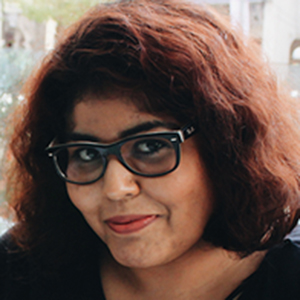Not too long ago, a colleague of mine was asking about the privacy setting on Facebook. Having deactivated her account for close to half a year, she was not familiar with the latest privacy setting. This prompted each of us to divulge the various customisations we had set for the various levels of privacy we wanted and how to play around it.
 Because the internet has been a part of our lives for the past two decades, its significance and role growing exponentially over time, we are more ready to adopt new digital technologies than we used to previously, especially when it comes to social networking sites.
Because the internet has been a part of our lives for the past two decades, its significance and role growing exponentially over time, we are more ready to adopt new digital technologies than we used to previously, especially when it comes to social networking sites.
In the early days of Facebook, I would not post personal photos other than the pre-requisite profile photo. Upon digging through the 10 years’ worth of Facebook posts, I discovered that indeed I had not posted any photos before 2008!
Seven years later, I now have my Facebook, Twitter, and Tumblr accounts connected to Instagram so that photos I post there goes on the three other sites as well.
So why this need to put my life on display for others when we hardly have any meaningful exchanges other than the cursory “Like” on photos or status updates?
The oft-quoted statement “It is not real until it’s on Facebook” speaks of the compulsion we feel to document every single thing as proof of doing something at the expense of actually experiencing it in the moment.
Over the past few years I have learnt what to post online and what not to post. Self-censorship online was my strategy when I realised that what is posted online can have consequences offline, seen from cases where people lost their jobs because of what they had posted.
Suddenly I was thinking about what so-and-so would think if I posted Photo A or how who-and-who would react if I shared Article Z instead of thinking “I do not want B to see Photo A but I want C to see it”.
After all, my online persona and life is as real as my offline one, and each can create ripples that play out in the other space. What happens if one of my online accounts gets hacked?
Just like my colleague, I started asking my friends what they did in such situations. Privacy settings, they all recommended. I experimented with different methods – grouping people on my Friends’ List for social networking.
By manipulating the privacy setting, I could post what I wanted to my targeted audience and not have to worry about the others.
As for security, it was passwords – unique passwords for different accounts or sites, stronger passwords, using secure internet connections and so on. I did more thorough research on online sites and services instead of blindly signing up or downloading like I used to in the past.
Since we are clearly concerned about how we present ourselves online and staying safe, are we certain that the platforms we consume or participate in online are not abusing what we reveal? The information we give, like our phone numbers to Google or Facebook for account verification, how sure are we that they are treating that information with respect?
Sometimes I get personalised newsletters from websites or services that I have never visited or heard of, which makes me wonder how my details ended up in their databases. These are just some of the concerns that crop up in terms of internet privacy and security.
While it is important to remember that it is entirely our prerogative on what we reveal online, we should also be aware of the potential safety and privacy breaches that we could experience. It should be our responsibility as the consumer to be informed as we tend to click “Accept” without reading the fine print, which means we have no idea what we have agreed to in the first place.
As more and more of our lives are being lived out online, we should start taking a vested interest in online privacy and security to protect ourselves and preserve our autonomy.
In as much as we want to protect our privacy and guard our security in “real life”, we must want them for our online life too. – July 25, 2015.
* This is the personal opinion of the writer or publication and does not necessarily represent the views of The Malaysian Insider.


Comments
Please refrain from nicknames or comments of a racist, sexist, personal, vulgar or derogatory nature, or you may risk being blocked from commenting in our website. We encourage commenters to use their real names as their username. As comments are moderated, they may not appear immediately or even on the same day you posted them. We also reserve the right to delete off-topic comments